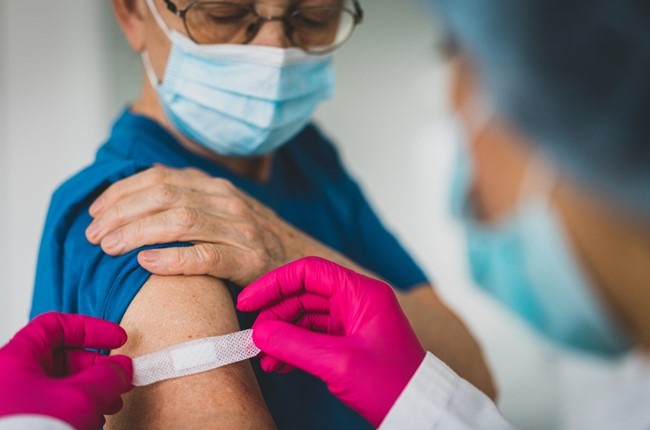
When it came to government procurement of Covid-19 vaccines, five principles were flouted. Fatima Hassan and Thabo Makgoba argue that the public have a right to know how their money was spent.
In August 2020, just months into the Covid-19 pandemic, South Africa was facing multiple reports of corruption in health procurement and inappropriate use of pandemic response funds.
President Cyril Ramaphosa responded, saying government would leave no space for the abuse of "the people’s money" in its crackdown on Covid-related corruption. Like us, he argued for public procurement to be "more transparent and open to public scrutiny". When he announced the formation of a Ministerial team to open up Covid-19 procurement information, he called it a possible "watershed moment" for transparency and accountability in public sector procurement.
We await that "watershed moment". While what president Ramaphosa said then represents a political pledge, it is also actually a constitutional requirement for public procurement in South Africa to be conducted in accordance with principles of fairness, equitability, transparency, competitiveness, and cost-effectiveness. However, when it comes to government procurement of Covid-19 vaccines, these five principles have in our view been flouted, essentially at the behest of a handful of pharmaceutical companies and intermediaries.
Could happen again
Three years on, groups in South Africa are taking our government to court to try and find out the details of the procurement of publicly funded Covid-19 vaccines. The Department of Health has signed non-disclosure agreements (NDAs) with several pharmaceutical companies, at the latter’s request, in effect trading secrecy for vaccine supplies. These manufacturers made huge profits off the back of the public – but away from public scrutiny.
If this goes unchecked, it could happen again. In the future, procurement contracts under National Health Insurance (NHI) (where the state will, over time, become the sole procurer of health goods) and even procurement under the next epidemic or pandemic could remain shrouded in secrecy.
The South African government has previously estimated that R19.3 billion would be spent on acquiring Covid-19 vaccines, but we have no real way of knowing. There has been no public disclosure of even which officials signed contracts with which companies, or whether deals were struck with companies with South African subsidiaries or their international counterparts. It is also reported in the media that the South African government had to grant broad indemnification against claims of civil and criminal liability to benefit vaccine manufacturers, possibly against negligence too. South Africa was also seemingly prevented from imposing export restrictions for vaccines filled and finished here by certain vaccine companies.
READ | Covid-19 vaccine procurement: Health Justice Initiative applies to join court battle
That might partially explain why, when we (and the rest of Africa) faced severe supply shortages at the height of South Africa's third wave of Covid-19 infections in 2021, vaccines that were filled and finished in Gqeberha were first shipped and exported to European customers, by Johnson & Johnson. Reflecting on that period, recently Ramaphosa explained how Africa "felt like we were beggars when we needed access to vaccines".
There are also concerns over clauses that may have restricted South Africa's use or onward sale of donated or procured vaccine doses, and a failure to include clauses to punish and penalise the late or non-delivery of supplies. In a global context of gross vaccine nationalism and inequity, referred to as vaccine apartheid, this left us vulnerable.
The Health Justice Initiative has repeatedly requested public disclosure of contracts between the government, pharmaceutical companies, and international programmes such as Gavi and COVAX. But our requests were either ignored or refused on the grounds of "confidentiality" by the department and at least one leading vaccine company (Pfizer).
Only transparent when it suits them
The irony is that pharmaceutical companies have publicly proclaimed the importance of 'transparency' when it suits them: In a 2021 written submission to South Africa's Parliament on an issue related to procurement of health goods under NHI, Johnson & Johnson stated that when NHI is implemented, it should not "create a procurement system that is contradictory to the Constitution". It also took it upon itself to remind South African lawmakers that "procurement by any organ of the state must be fair equitable, transparent, competitive, and cost effective" (emphasis added). But, despite their public call for transparency, Johnson & Johnson have refused to publish their contract with the South African government or lift the broad NDA it insisted on.
READ | Health campaigners want access to govt's vaccine procurement contract with J&J
In June 2021, Pfizer took out a full page media ad in the New York Times stating that ‘Equity’ is Pfizer’s ‘north star'. But South Africa and other Global South countries waited far longer for Covid-19 vaccines than rich countries, fueling inequity. Despite this inequity in access, Pfizer and others racked up huge profits, described as a ‘‘once-in-an-epoch windfall", all while demanding secrecy through NDAs. No company should have so much power.
The public have a right to know how our money has been spent, and what conditions have been signed up to on our behalf. That is why the Health Justice Initiative is taking the government to court, asking for an order instructing the Minister of Health and Department of Health to disclose all Covid-19 vaccine procurement contracts, agreements, and the minutes of any negotiation meetings.
The lack of complete transparency about what the government negotiated with vaccine manufacturers clearly flouts the principles of fairness, equitability, transparency, competitiveness, and cost-effectiveness governing public procurement. It cannot be that in democratic South Africa, the price and other terms and conditions, and even the names of who received and signed away huge sums of public money are kept secret.
Pharma companies claim that they too want procurement transparency but then run roughshod over our democratic processes when it suits their bottom line. They have exploited us in a time of desperation, while facing an artificial scarcity of vaccine supplies – an issue that our President speaks often about on multiple global platforms. Releasing this information will blow the lid on the industry's notorious contractual secrecy demands, an issue that has always affected people and patients around the world.
We believe that this case will ensure that a clear precedent is set for future pandemics and epidemics and especially for procurement under NHI. And that all procurement information related to publicly funded health goods is automatically placed in the public domain. It will also place a spotlight on the practice of contractual secrecy and perhaps compel or voluntarily encourage multinational pharmaceutical manufacturers to stop trading lifesaving medicines and vaccines for secrecy in South Africa.
- Fatima Hassan is a human rights lawyer and social justice activist. She is Director of the Health Justice Initiative
- Archbishop Thabo Makgoba is the Anglican Archbishop of Cape Town and Metropolitan of the Anglican Church of Southern Africa.
*Want to respond to the columnist? Send your letter or article to opinions@news24.com with your name and town or province. You are welcome to also send a profile picture. We encourage a diversity of voices and views in our readers' submissions and reserve the right not to publish any and all submissions received.
Disclaimer: News24 encourages freedom of speech and the expression of diverse views. The views of columnists published on News24 are therefore their own and do not necessarily represent the views of News24.




 Publications
Publications
 Partners
Partners























